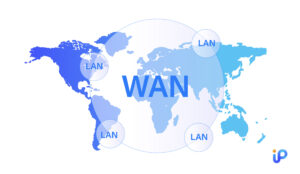5 Min Read | 23 Sep 2024 | Key Words: IPv4 Waiting List, IP Leasing, RIRs, Scarcity IP Management
IPv4 addresses are essential for the internet, but with its rapid development, these addresses are depleting. Over 430 million IPv4 addresses have been fully allocated to ISPs, except for a reserved amount within a single network.
This scarcity means businesses might have to join an IPv4 waiting list managed by their Regional Internet Registry (RIR) to obtain these addresses.
In this article, we explore the concept of an IPv4 waiting list and its operations. Is there a way to obtain IP resources without enduring a lengthy wait on a waiting list? Continue reading to discover the answers and learn about alternative options available in the market.

What is an IPv4 waiting list?
An IPv4 waiting list is a mechanism for companies to obtain IP addresses when they are in short supply. Despite the dwindling pool of available IPv4 addresses, Regional Internet Registries (RIRs) have established waiting lists. These lists will continue to recover small amounts of addresses for the foreseeable future. These are addresses that have been de-registered when members go out of business, are shut down, or choose to return them.
How Does an IPv4 Waiting List Work?
Any approved request that cannot be immediately fulfilled from the Recovered Pool is automatically added to the waiting list, organized by the date and time the Regional Internet Registries (RIRs) received it.
As additional recovered IPv4 address spaces become available in the Recovered Pool, requests on the waiting list are processed in sequence, starting with the oldest.
However, not all Regional Internet Registries maintain waiting lists. Only three of the five RIRs—ARIN, RIPE NCC, and LACNIC—have established waiting lists for acquiring IPv4 addresses, while the others do not.

The Similarities and Differences Between Regional Internet Registries
Different RIRs have waiting lists that operate under similar guidelines. For example, any company looking to join the queue for IP addresses must adhere to the policy requirements set by each RIR. Under the policies of ARIN, RIPE NCC, and LACNIC, only registered Local Internet Registries (LIRs) can request IPv4 addresses under the rules of ARIN, RIPE NCC, and LACNIC. Notably, for LACNIC, you must have been assigned IPv6 resources. Additionally, RIPE NCC LIRs must not have previously received IPv4 allocations, including those from the waiting list.
Each RIR manages its own list and updates it based on the number of addresses they can recover from businesses that no longer need them. Each RIR also varies in the number of requests on its waiting list for IPv4 allocation. For example, as of October 2024, RIPE NCC and LACNIC had significantly more requests, with 1023 and 1421 respectively.
However, the number of recovered IP addresses is often small and insufficient to meet the growing demand. LACNIC and ARIN accept requests for /22, /23, and /24 blocks, whereas RIPE only supports /24 allocations. This limited selection of internet resources cannot fulfil the demands of companies requiring large quantities of IPs.
Enduring the Wait: The Reality of IPv4 Waiting Lists
Unfortunately, joining the IPv4 waiting list can mean a long wait, sometimes months or even years depending on the region and needs. For example, the table below shows the number of requests currently on the waiting list at RIPE NCC and the number of days the Local Internet Registry (LIR) at the front of the queue has been waiting. As you can see, you may need to wait at least 400 days if you have already submitted your request for IPv4 addresses.

Moreover, obtaining IPv4 addresses from LACNIC currently requires about five years. The table below, which illustrates the evolution of waiting times for organizations receiving resources, clearly shows an increasing trend, with recent wait times reaching up to three and a half years.

Clearly, joining a waiting list is not the quickest way to acquire IPv4 addresses unless you are prepared for a long wait
There is no need to wait
Obviously, the main drawback of joining such a list is the potentially extensive wait time before receiving the needed IP address space. Some companies may consider transitioning to IPv6 to reduce their reliance on IPv4 addresses. However, this transition can be complex and costly due to factors such as hardware compatibility issues and the expenses associated with widespread adoption.
For businesses that need IP addresses quickly, leasing offers a more practical and timely alternative. Platforms like IPv4 Superhub offer a quick, automated way to lease the IP addresses businesses need. This allows companies to access any number of IP addresses, large or small, without the delays associated with RIR waiting lists.
Regional Internet Registries play a crucial role in alleviating the scarcity of IPv4 addresses. With implemented IPv4 waiting lists, RIRs enable their members to request internet numbers. Unfortunately, RIRs cannot predict when or how many resources they will be able to allocate, and it often takes a considerable amount of time for companies to acquire IPv4 addresses through waiting lists. Fortunately, IP leasing offers a more time-efficient, flexible, and convenient alternative to a waiting list.




